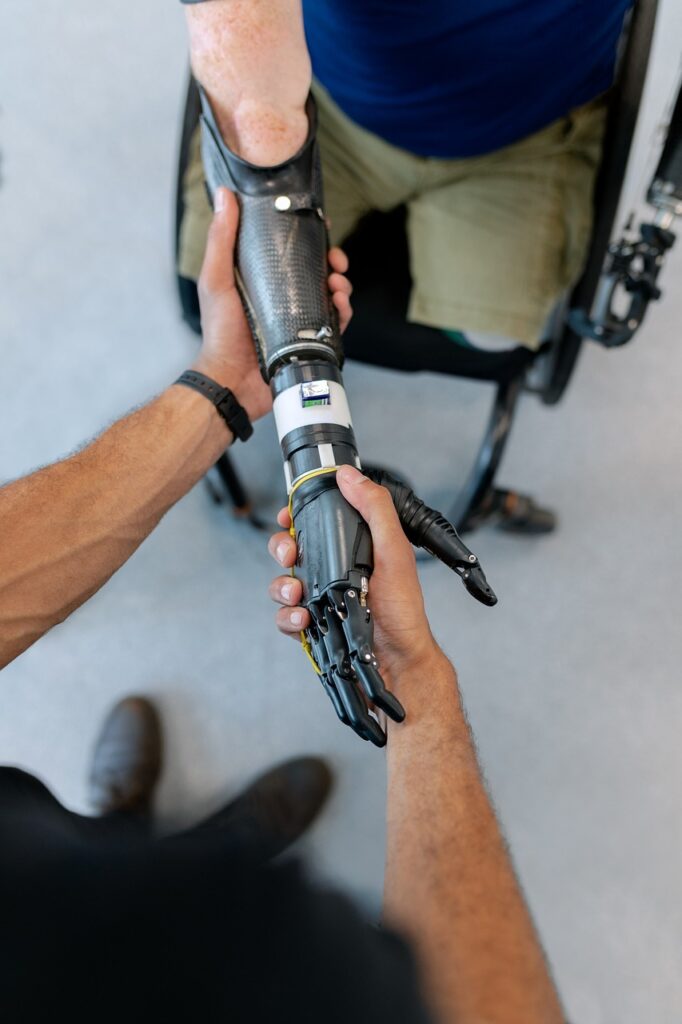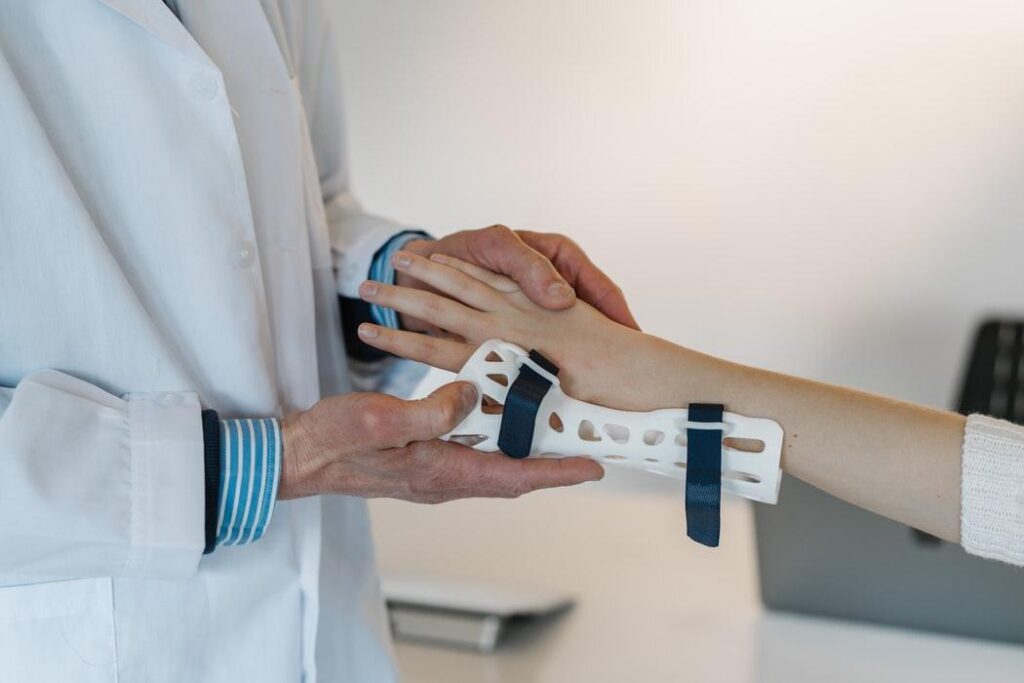From the microscope’s invention in the 17th century, technology has played a significant role in medicine. Great innovations in surgical tools have happened since, leading to the current advanced ones. At the top of the present cutting-edge technologies in the medical field are Artificial Intelligence, Telemedicine, 3D printing, Augmented and Virtual reality, Wearable and Nanotechnology, robotics, and Genome sequencing.
The advancement of online platforms makes it easy for patients to access information. You can find out information about specific products or health issues online. Patients can also order medicine and natural treatment alternatives such as CBD gummies from Sunday Scaries and anxiety from their homes. It’s in these advancing technologies that the future of healthcare lies. Let’s take a more in-depth look at some of them.
1. Artificial Intelligence (AI)

Artificial intelligence and machine learning are impacting many industries. The technologies have also made their way into the healthcare sector. AI is redefining healthcare systems. Powerful computing tools can learn and adapt faster than humans, which makes them beneficial in medicine.
AI promises faster and more precise diagnoses, improved drug development, and efficiency in managing chronic disease. Here are some of the ways AI is impacting the healthcare industry:
- Digital consultation: While this technology has been around, AI is making it seamless. Through deep learning, users can make better decisions. Machines ask relevant questions and provide well-informed answers to patient’s queries.
- Smart diagnosis: AI has simplified the otherwise tedious processes and increases accuracy. It allows the detection of severe conditions in their early stages in the radiology and cardiology departments. Doctors can now detect cancer cells early enough to prevent their growth.
- Drug discovery: AI uses massive medical data and useful information to come up with promising therapies. It speeds the process and brings hope to the healthcare sector.
- Robotic assistance: Robots relieve doctors from time-consuming routine tasks, improves accuracy in medical procedures, make them safer, and cuts costs for patients.
2. Telemedicine

Telemedicine involves leveraging virtual communication between the doctor and the patient. It involves remote diagnosis and treatment, which can take video, audio, calls, or texts. Using this technology, the patient can receive treatment through video conferencing, eliminating physical presence.
As Covid19 surges, this healthcare technology has been of unmeasurable usefulness. With lockdowns and the requirement to stay at home, thousands of people have managed to get appropriate healthcare from their homes. It’s a timely intervention and a perfect alternative during such times as these when physical visits have more risk. Telemedicine is also available in some medical centers for surgical procedures. This allows for intricate surgeries in a robotic style on patients who could be miles away. It provides a level of convenience that can’t be underrated.
3. 3D Printing Prosthetics

This technology helps doctors to print anatomical models of a specific patient from the actual patient imaging. The physician no longer needs to rely on the 2-dimensional MRI or CT scans when preparing for surgery. Using data from medical imaging and a 3D computer-aided design model, an almost real 3D printed model of a patient’s body part can be created. This allows a surgeon to fine-tune a procedure before surgery.
3-D printing prosthetics has made its way into rehabilitative medicine. It’s playing a major role in the creation of Prosthetics and aiding amputees, especially those in the developing world. They now have access to prosthetic devices and assistance, which are of high quality in functionality. With the use of just a 3D scanner that is handheld and a remote 3D printer, it’s possible to create low-cost 3D printed prosthetics.
4. Augmented/ Virtual and Mixed Reality
Augmented, visual, and mixed reality technologies are crucial not just in medicine but in other industries. Virtual Reality (VR) creates a 3D digital environment that completely replaces reality. Augmented Reality (AR), on the other hand, overlays digital content above the real world, while Mixed Reality (MR) makes superimposed digital content superficially interact instantly with the environment.
These three highly funded technological innovations may end up being used as part of our daily lives. Though this innovation has been taking root since the early 90s, it was a magic leap that released the first advanced VR/AR product in 2019. Oculus released another month after, which doesn’t require a computer connection.
5. Wearables and Nanotechnology

Wearable electronics are available in fitness trackers, smartwatches and garments, data gloves, and smart medical attachments. They mainly consist of actuators, sensors, electronics, and some form of power supply. Wearable actuators react from a signal generated from a sensor.
Wearable technologies offer innovative solutions to various health issues. They help to prevent diseases and promote the maintenance of health. There are devices designed to maintain health through monitoring weight and physical activities. Moreover, such technology allows doctors to manage patients and make managing diseases easier for patients. The devices can also have a direct influence on clinical decision making.
Conclusion
The advancement of technology in the healthcare sector is positively impacting researchers, patients, and doctors. It helps to deal with the gaps and inefficiencies of the healthcare systems all over the world. As new inventions and innovations enter the medical space, the future of medicine can only look brighter. Soon, hybrid models will emerge, improving diagnosis, medical developments, and reduce risks. Although there are still some flaws in some technologies, future enhancements will help streamline their operations. This will transform the entire healthcare industry.
References
https://healthinformatics.uic.edu/blog/3-ways-technology-has-changed-healthcare/
https://www.telegraph.co.uk/business/open-economy/new-technologies-transforming-healthcare/
https://healthinformatics.uic.edu/blog/3-ways-technology-has-changed-healthcare/



